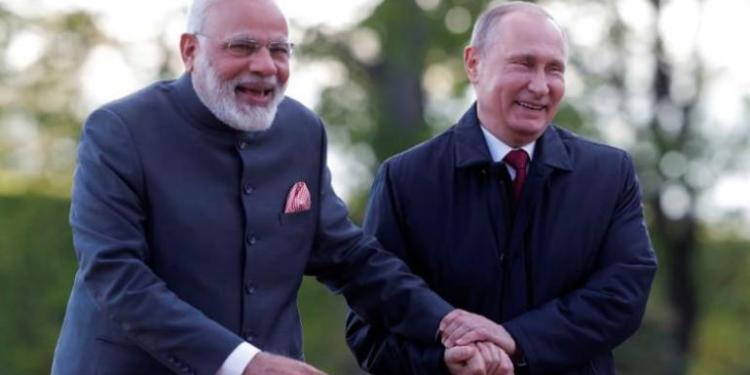National security seems to be the priority of the Modi government in the second term. It has not been even a month since the re-election and the government has already initiated two major defence deals with Israel and the United States. The defence doctrine of the country is directed by building defense against Pakistan and carry out attack on the terrorist nation, if required. The Balakot airstrike seems to be a guiding lesson for India in upcoming defence deals.
In the first defence deal of the second term, the Modi government has ordered 100 Israel made SPICE (Smart, Precise Impact, Cost-Effective) bombs for Indian Air Force. The SPICE bombs were used by the IAF to carry out airstrikes in Pakistan in which Jaish-e-Mohammed terror camps were destroyed.
The second defence deal of India was with the United States. The government is ready to purchase National Advanced Surface to Air Missile System-II (NASAMS-II) from the US to erect a multilayered missile shield for National Capital Territory of Delhi. The Modi government plans to build a 5 layer air missile defense programme with two layers of indigenous air defense systems and three of US, Russia and Israel for any prospective threat from Pakistan or China.
The third defence deal of the country is with Russia. Modi government has ordered 300 short-range air-to-air missiles, the R-73, and 400 medium-range air-to-air guided missiles, the RVV-A for Indian Air Force. The total cost of the deal is 700 million dollars and these missiles with be developed by Russian Tactical Missiles Corporation.
A day after Balakot airstrikes, Pakistan unsuccessfully tried to destroy Su-30 MKIs using US medium-range AIM-120 AMRAAM missile. The Russian made R-77 is the counterpart of AIM-120 and it will enable IAF to carry out such strikes on Pakistani fighter aircraft. These missiles could be armed on MiG and Sukhoi fighter aircraft.
According to Russian manufacturer, R-77’s range is 80 Km while R-73 have range of 30 km. “Russia and India can jointly implement the programme of modernisation of the IAF’s air-to-air missiles. All the requirements of the Air Force can be discussed and met. The work could start as soon as possible once the formal request is made,” said the sources to The Print.
In the last month, India has given a very clear signal that Israel, the United States and Russia are going to be the most important defence partner of the country for the next few years. Many experts believed that the country would follow a US-centric foreign policy and Modi government will not make any major defence deal with Russia in the second term, given the fact that US was opposed to 6 billion dollar S-400 air missile defense system deal. Previously India also signed 3.3 billion dollars deal with Russia for leasing a nuclear-powered attack submarine.
The previous defense deal despite the opposition from the US indicates that Russia would continue to be ‘major defence ally’ of India.

























